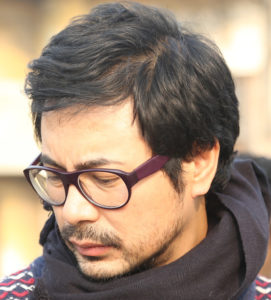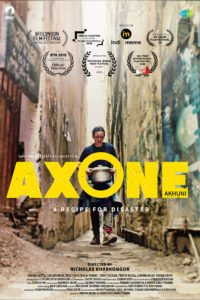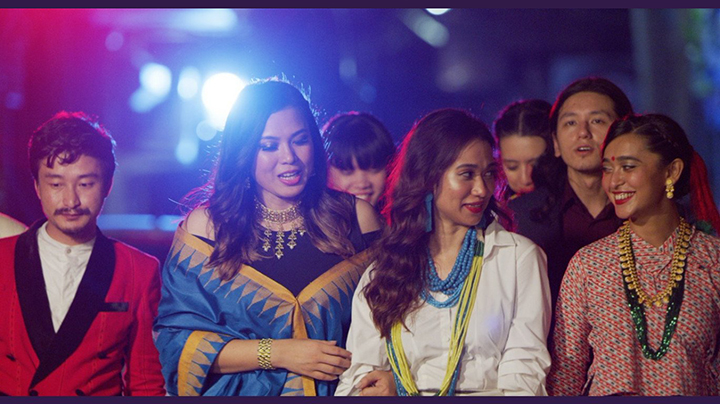Nicholas Kharkongor’s film Axone explores the travails of young North-easterners living in Delhi as they grapple with racism and the upheavals of relationships, through the course of an eventful day
On a hot summer day in Delhi, two young girls set out on a mission to prepare a special North-eastern Dish, Axone Pork, for their best friend’s wedding. The ingredients are bought, the stove is lit, the gang has gathered, but there is just one glitch. They all live in Delhi, and not the North-east India. And for people here, the dish emits a smell… which to them is pungent and unpleasant.
This is the plot of Nicholas Kharkongor’s film Axone. The film explores the travails of these young residents of Delhi’s Humayanpur as they grapple with outright racism and the upheavals of their interpersonal relationships. After being showcased at Mumbai Film Festival and BFI London Film Festival (in 2019), Axonestarts streaming on Netflix from June 12.
What sets the film apart from many is it is the first time a mainstream Hindi film explores the lives of people from the North-east. Eighty per cent of the cast also belongs to the community. Moreover, the film derives its authenticity from the fact that it has been written and directed by Nicholas Kharkongor – who himself is from Nagaland, but has lived in different cities, including Delhi.

“Initially when I thought I want to do a film about our experience of living in Delhi, it wasn’t difficult for me to think of this idea. It happens to every North-easterner when they get down to cook their own dish. They’ll run into some trouble or the other – sometimes it’s a minor one, like neighbours complaining about the smell. Other times it can be extreme, where you get into big fights with your landlord or neighbours. So that was a good starting point for me, by which I could show the casual racism that could happen to North-easterners and also get into their lives,” shares Nicholas.
Axone throws light on racism – but with a comic touch. “I thought it made more sense for me, with this film, to deal with it in a light-hearted way and touch upon things that happen. Instead of making this heavy, accusatory, I want everyone to watch it and say, ‘I’ve probably done this to a North-easterner too!” he adds.
Nicholas also shows his concern for attacks that North-easterners in India have been facing amid the pandemic – like being called “Corona” – which has been going on for the last couple of months. Furthermore, he adds that one particular incident in 2014, the killing of a young northeasterner in Delhi – Nido Tania – affected him and others from the community deeply. “Every one of us had gone through a certain amount of racism but not to that extreme level. So it really affected us. One of the characters in my film is based on Nido Tania,” he says.
The film, produced by Yoodlee Films, has a great ensemble cast – Sayani Gupta, Lin Laishram, Lanuakum Ao, Tenzin Dalha, Dolly Ahluwalia, Vinay Pathak, Adil Hussain, among others.
Talking about her character in the film, Lin says, “I am playing Chanbi, a girl from Manipur, who works at a call centre. She is very responsible, she takes charge of everything. She’s like a leader and everybody looks up to her.”
She further adds that her character is very intense, and goes through a series of discriminations throughout the film. “I too have faced issues in my personal life, but not to the extent Chanbi faced. I live in Mumbai, and the situation here is not as bad as Delhi. Mumbai is more accommodating.”

While sharing her views on the lack of representation of the community in mainstream cinema, she says their stories are not written often. She also adds that there are no roles written for her as an actor. “To a great extent, there are not too many opportunities for us.”
Actor Sayani Gupta shares her filming experience. “It was fun, but it was really tough shooting in Delhi in July. We were shooting at a place called Humayunpur – which is the ghetto of the North-eastern community. We were around 100 people in cramped spaces. But they were a lovely bunch. And because the circumstances were tough, we became really good friends.”
Sayani plays Upsana, a 23-year-old Nepali girl. “She has her complexes, and is little insecure about herself, but is really quirky, funny and adorable at times. She speaks and acts before thinking, and is high on energy,” she says.
Throwing light on how more films should portray racism, but with authenticity, she says, “There should be more films on this topic, but we should be authentically portrayed. There’s no point if a guy from Delhi or Mumbai makes a film about us without enough knowledge. The good thing about Axone is that it is made and written by Nicholas — who is from the North-east. His reality is authentic. The film’s reality is his reality. That authenticity in portrayal is very important. Otherwise what you see is the stereotyping and caricatures.”
“I think this is the first film where majority of the characters are from the North-east, and the story revolves around them. A film like this will strike a conversation – among writers, filmmakers, audience and there will be more light on us. There will be more awareness about our community. This is a first of its kind, and it’s going to Netflix – which is one of the biggest OTT platforms. So, I am hoping it touches as many people as it can and people should feel and connect with the story,” says Lin.
Nicholas believes there’s a burden that always exists while presenting the story of a particular community onscreen — especially when you talk about his community, because people forget that it is a very small geographic area but full of variety. “Have I been able to do justice to the community? Probably not. But if I have been able to at least present some of the things that are unique about the North-east and present that to a larger audience in India. If I can accomplish that in some way, I’ll be happy!” he concludes.
Axone is now streaming on Netflix
(Cover: “Axone” gives an insight into the world of northeasterners living in Delhi)




